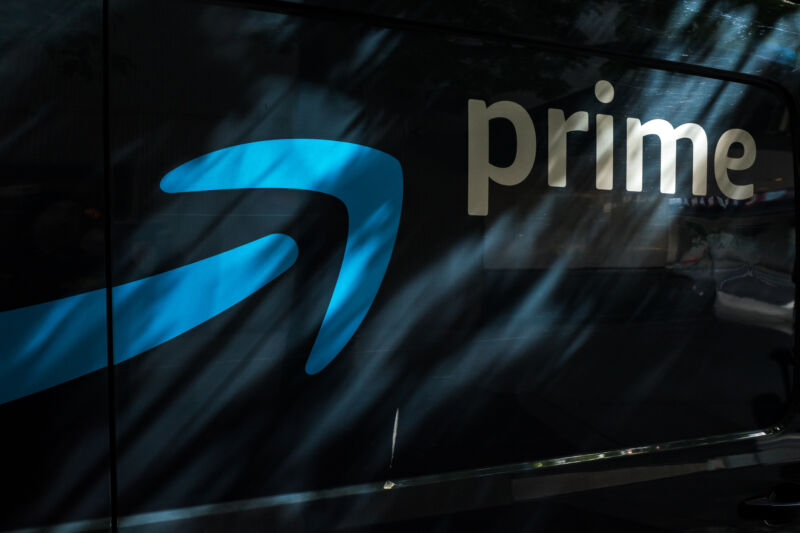
Yesterday, Amazon did not persuade a US district courtroom to dismiss the Federal Commerce Fee’s lawsuit concentrating on the tech large’s alleged historical past of tricking folks into signing up for Prime.
The FTC has alleged that Amazon “tricked, coerced, and manipulated shoppers into subscribing to Amazon Prime,” a courtroom order mentioned, failing to get knowledgeable consent by designing a murky sign-up course of. And to maintain subscriptions excessive, Amazon additionally “didn’t present easy mechanisms for these subscribers to cancel their Prime memberships,” the FTC alleged. As a substitute, Amazon pressured “shoppers meaning to cancel to navigate a four-page, six-click, fifteen-option cancellation course of.”
Of their movement to dismiss, Amazon outright disputed these characterizations of its enterprise, insisting its enrollment course of was clear, its cancellation course of was easy, and none of its executives might be held chargeable for failing to repair these processes when “unintended” sign-ups grew to become widespread. Amazon defended its present practices, arguing that a few of its Prime disclosures “align with practices that the FTC encourages in its steerage paperwork.”
However the decide apparently didn’t discover Amazon’s denials utterly persuasive. Viewing the FTC’s criticism “within the mild most favorable to the FTC,” Choose John Chun concluded that “the allegations sufficiently point out that Amazon had precise or constructive information that its Prime sign-up and cancellation flows have been deceptive shoppers.”
In his order, Chun additionally denied particular person motions to dismiss from Amazon executives Russell Grandinetti, Neil Lindsay, and Jamil Ghani, who oversaw Prime operations.
Executives had urged the courtroom to dismiss the FTC’s claims towards them. They argued that the FTC “singled them out ‘for an ‘unprecedented sanction'” when the company had “solely lately began prosecuting firms for utilizing ‘darkish patterns'” beneath Restore On-line Customers’ Confidence Act (ROSCA) and the FTC Act. They claimed that the FTC by no means alerted them to any wrongdoing earlier than submitting the lawsuit, so how may they’ve identified they have been violating the legislation?
In keeping with Chun, nonetheless, the FTC sufficiently alleged that every of those executives knew they have been violating client safety legal guidelines when prioritizing income over eliminating darkish patterns triggering “unintended” or “nonconsensual” Prime sign-ups.
Chun defined that executives could also be “personally accountable for company violations of the FTC Act if the person ‘participated instantly in, or had the authority to regulate, the illegal acts or practices at subject.'”
For instance, when Lindsay—who in 2016 had the “most duty for the Prime subscription program”—was “requested about Amazon’s use of darkish patterns in the course of the Prime enrollment course of,” Lindsay justified the darkish patterns.
“Lindsay defined that after shoppers turn out to be Prime members—even unknowingly—they may see what an amazing program it’s and stay members, so Amazon is ‘okay’ with the scenario,” Chun’s order mentioned.
And when Grandinetti, who “oversaw the Prime subscription program” in 2018, was informed that the sign-up course of and auto-renew characteristic pissed off prospects, he “vetoed any modifications that would scale back enrollment.”
As a result of executives seemingly prioritized income over decreasing buyer friction, the FTC alleged that affordable prospects obtained sucked into Prime with out their consent. Generally prospects understandably obtained confused by the “discrepancy in dimension, location, and colour” of Amazon’s disclosures, Chun advised. Different instances, confusion struck when Amazon tried to upsell prospects on Prime at checkout—pairing their enrollment with their different purchasing expertise.
One such trick that Chun known as out noticed Amazon providing two-day free transport with the clicking of a button at checkout that additionally signed prospects up for Prime even when they did not full the acquisition.
“With the provide of Amazon Prime for the aim of free transport, affordable shoppers may assume that they might not proceed with signing up for Prime until additionally they positioned their order,” Chun mentioned, in the end rejecting Amazon’s claims that each one of its “disclosures can be clear and conspicuous to any affordable client.”
Responding to Chun’s order, an Amazon spokesperson informed Ars that Amazon denies the FTC’s allegations as false.
“The FTC’s claims are false on the details and the legislation,” Amazon’s spokesperson informed Ars. “The reality is that prospects love Prime, and by design we make it clear and easy for patrons to each join or cancel their Prime membership. As with all our services and products, we regularly take heed to buyer suggestions and search for methods to enhance the shopper expertise, and we sit up for the chance to current the actual details within the case.”